- Pingback: Empowering local economies through Tourism - Oveit.com %
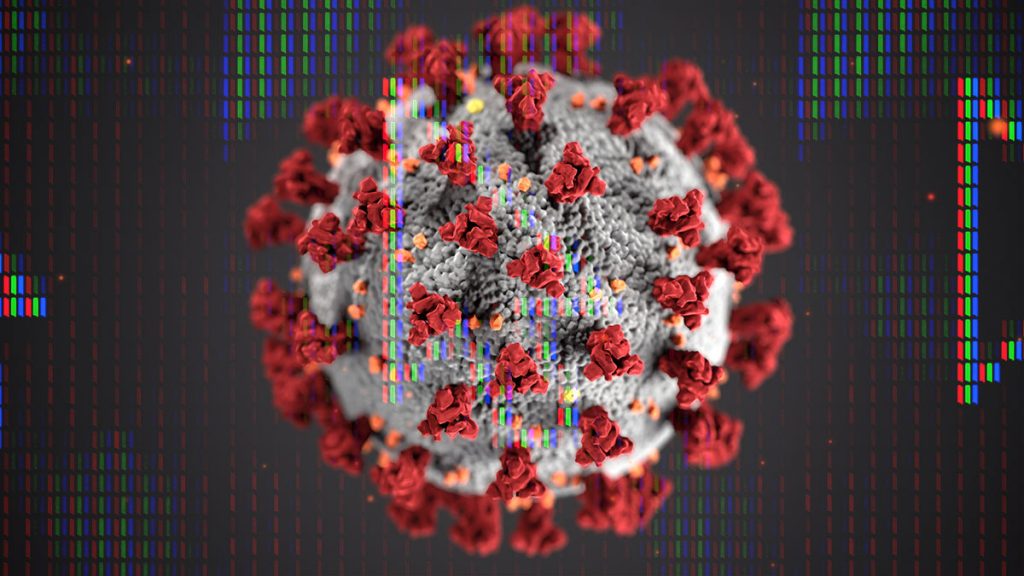
We pledge our tech against Coronavirus: 8 ways to fight the disease
More and more people are being reported as infected with the COVID-19 virus which causes the Coronavirus Disease. As many communities all across the world are being challenged by this epidemic we, as citizens of the world need to stay united and ask ourselves: what can we do to help?
This is the exact question we’ve asked ourselves. Can our work fight against this epidemic? Can we use tech against Coronavirus?
The answer is yes, we can. We are already a company dedicated to supporting local communities. Now we pledge our technology and support to any community affected about the Coronavirus outbreak. No strings or costs attached.
Photo credit by CDC on Unsplash
Here’s how we can help:
1. Use cashless and contactless payments to avoid spread of the Coronavirus disease through cash
The most common way for coronaviruses to spread is through person to person transmission. You can check details here . Don’t forget when getting your news – always trust verified sources, especially on health issues.
However, Covid-19 can survive on different types of inanimate objects for up to 9 days, as estimated by a March 2020 study published in the journal of Hospital Infection. This, in turn, allows inanimate surfaces such as money to become sources of infection.
Our contactless technology has been developed for usage in closed loop environments such as events, venues and hospitality resorts. This means places and areas where many, many people congregate.
How can you use this tech against Coronavirus? You can use Oveit Pay to allow cashless and contactless payments in areas that are not yet accustomed to these new means of payments, thus reducing potential dangerous interactions.
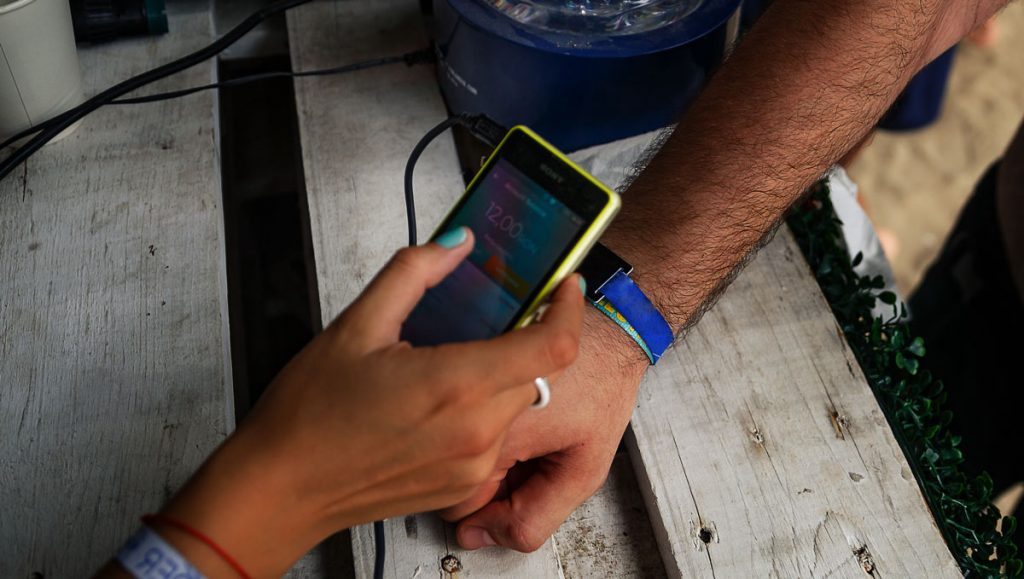
If you want to reduce the exchange of currency in your community, thus reducing infection chances, we are here to help. Do reach out. We are ready to help without any cost.
2. Access control to quarantined areas
Oveit was designed to manage access to very large events or venues. Therefore it is built for speed, reliability and flexibility.
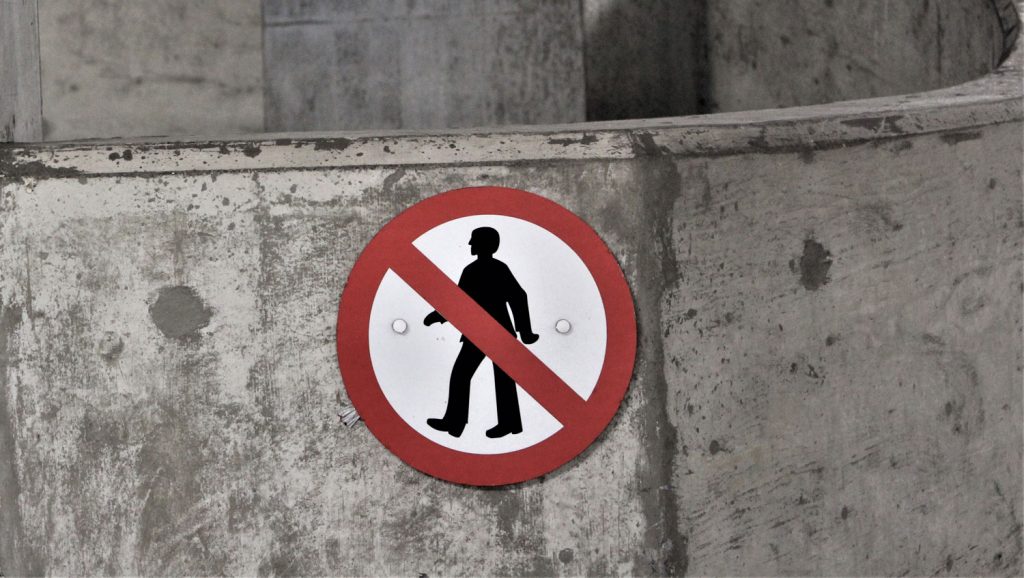
How can you use this tech against Coronavirus? Quickly set up an access management system to quarantined communities.
The system can operate either using NFC cards (the same technology used in contactless payment cards) or biometric facial features, if you need a higher level of security and less contact.
While we are not experts in the field we assume that just as with all large gatherings, you will need different access rights and roles. This can be easily set up for let’s say medical professionals, logistics personnel or general public.
3. Use tech to manage patient history and tracking in improvised treatment spaces
Given its mild symptoms, longer incubation and high infectivity rate, Coronavirus infections tend to spread very fast. This leaves public health facilities stretched and new treatment areas have to be added fast. With high stress and lacking sleep medical professionals need technological help to maintain patient data and trace-ability.
Our system is based on an infrastructure of managing visitors access, interactions history and journey. It is also built to run anywhere, in the cloud, with mobile interfaces.
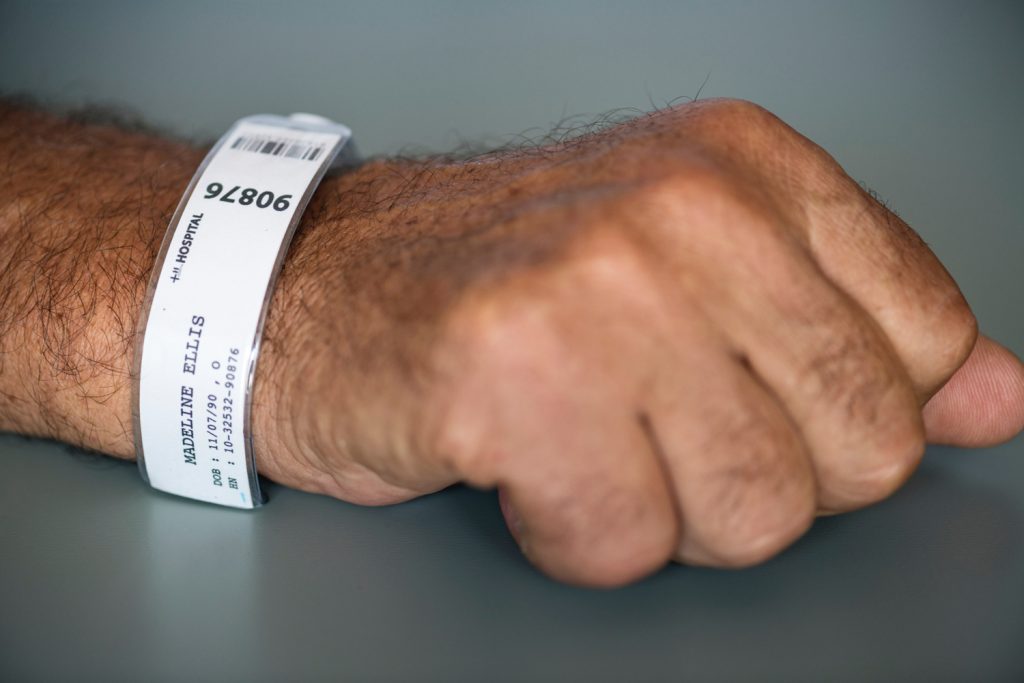
How can you use this tech against Coronavirus? Deploy the patient tracking and history system anywhere, without complicated hardware and software setup.
All that’s needed is NFC wristbands which can be shipped fast, mobile devices which are probably already available to anyone and an internet connection.
We can also help you connect the collected data to external, more specialized health management systems.
4. Tech against Coronavirus: rationing for goods, services, medical supplies and fuel
We’ve developed a system where any person that joins a specific group (whether it is an event, venue or community) can get access to specific items. We call these things add-ons.
The add-ons can be fixed (let’s say everyone gets a certain quantity of food) or it can be changed according to needs.
Let’s say everyone is entitled to the same amount of goods such as food or water but some specific cases need a bit more medical supplies.
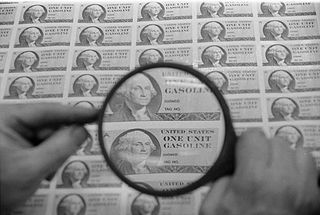
In times of crisis or disaster relief, the community used to issue specific tokens, such as the 1973 oil crisis stamps (see right).
How can you use this tech against Coronavirus effects? Access to the rationing can be done as previously mentioned via cards, wristbands or biometric usage. It can also be built into citizen apps where they can track usage, remaining ratios and more.
Historically the issuing of such tokens used to be cumbersome as it entitled certain logistics that were hard to manage, such as printing, shipping, distribution, managing identities and more. Now everything is digital and can be used in an instant.
5. Edge economies for communities that don’t have access to internet
All of the above are fine and all but sometimes crisis bring down core infrastructure such as electricity or internet.
Our technology is used in places that are usually unreliable, have a high technological stress and where deployment has to be done fast and securely and people are sometimes under the influence of unknown substances. Namely: festivals and large venues.
We’ve developed a system where areas that are either not connected to the internet or have unstable internet connections can have a local economy based on local hardware. They will hold a distributed ledger of value, transactions and allow monetary and value exchange until core infrastructure is restored.
We packed this into a hardware-software product we call the Edge Box and it looks like this:
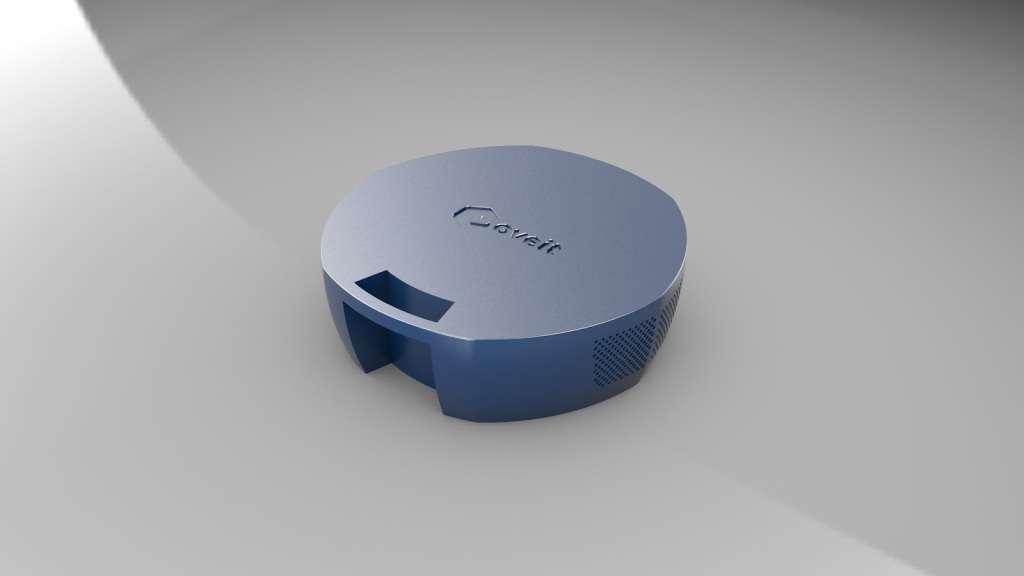
How can you use this tech to fight against Coronavirus caused outages? Using the Edge Box we can help you set up edge payments in your community that can operate as independent value exchange media for your citizens, local businesses and allow life to continue until life returns to normal.
Why is it called edge? Because it operates at the edge of the cloud.
6. Build a local economy that can operate even if disconnected from the outside world
In times of need communities tend to create economies naturally but they are usually unsustainable because of the usual underground distribution and analogue means of trading.
We think that in such extreme cases the community can still operate like a closed economy where specific actors in the economy can exchange with one another. Basically businesses can be onboarded and citizens can access their goods via virtual payment tokens that can be purchased either with traditional currency or with government issued credits.
Basically this shrinks the overall concepts of the open economy (the one we are all accustomed to) and offers it to a local community.
How can you use this tech against Coronavirus caused economic distress? This will allow the natural flow of goods, money and services that exist in that economy to operate in a quasi-normal way, all while being digitally connected to the financial system (bank, card payments and such)
7. Setup time banks
As Investopedia notes “Time banking is a system of bartering various services for one another using labor-time as a unit of account […]. Labor-time units can be credited to a person’s account in the time bank and redeemed for services from other members of the time bank. Time banking can be considered a form of community currency.”
This idea has been around for quite some time but it hasn’t really gained much traction outside of small communities. The reason? Scalability and safety issues when managing these types of ledgers.
How can you use this tech against Coronavirus caused economic problems? In closed environments such as a quarantined community, this can work as a very good exchange medium. Imagine the bakery providing bread and its value being accounted by the time being spent to manufacture the bread. The currency, time, can be exchanged afterwards into goods from other local sources.
Here’s a brief video describing the concept:
In quarantined communities exposed to Covid-19 work becomes a problem. Large gatherings are stopped and the trading of basic goods can move in the underground economy, cause supply issues and increase criminal activity.
8. Enable crypto payments to ensure economic continuity
This doesn’t necessarily affect the communities infected with Covid-19 but in times of crisis the financial system can be overwhelmed. For example in the case of the Yes Bank bankruptcy in India the cash withdrawals have been blocked.
In troubled financial systems such as Venezuela’s ecosystem, even very large institutions such as the Central bank and largest gas company are contemplating switching to Bitcoin as means of payments. The failure of financial policies has left the country unable to manage financial flow and has lead to civil unrest.
In extreme cases pandemics can bring the economy to its knees. In such cases the social structures are overburdened by existing efforts in disease containment. The disease is treated as an war effort and everything outside of it becomes second. Cryptocurrencies can work as stable coins in times of high economic stress and alleviate stress on governmental structures.
If you think these solutions can work for your community, we are very happy to help and we are always on the call to offer advice, help or our pledged services.
And again – this pledge means using our solution is free for any community affected by the COVID-19 virus and any help requested is confidential and on a need to know basis.
Stay safe!
Article written by .
Mike Dragan is the cofounder and CEO of Oveit and works daily on providing better tools for live experiences. Mike has a background in computer science and loves building digital products.